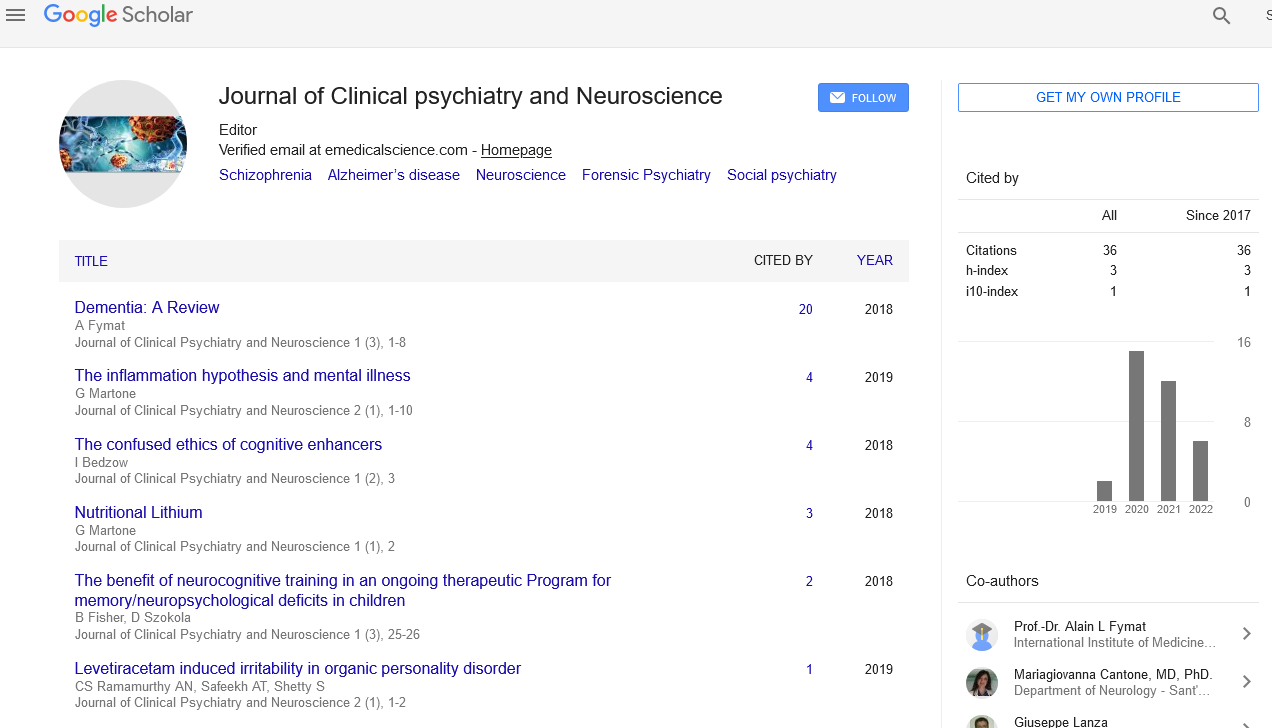
Sign up for email alert when new content gets added: Sign up
Introducing “Precision Addiction Management (PAM®)” utilizing polymorphic matched alogarithms and Pro-Dopamine regulation to combat Reward Deficiency Behaviors (RDS) including Substance Use Disorder (SUD) globally
Joint Event on 2nd World Congress on ADVANCES IN ADDICTION SCIENCE AND MEDICINE & 10th International Conference on DEMENTIA AND DEMENTIA CARE
July 24-25, 2019 | Rome, Italy
Kenneth Blum, Marjorie C Gondre-Lewis, David Baron, DO Lisa Lott, Jessica Ponce-Rodriquez, Mark Moran,Lyle Fried, Mauro Ceccanti, Raju Hajela, Rajendra D Badgaiyan
Western University Health Sciences Graduate School of Biomedical Sciences, USA
Geneus Health, USA
Howard University, USA
Howard University College of Medicine, USA
Transformational Treatment Center, USA
University of Rome, Italy
University of Calgary, USA
Ichan School of Medicine at Mount Sinai, USA
ScientificTracks Abstracts: J Clin Psychiatr Neurosci
Abstract :
Research into the neurogenetic basis of addiction identified and characterized by Reward Deficiency Syndrome (RDS) includes all drug and non-drug addictive, obsessive and compulsive behaviors. This keynote presents a new model for the prevention and treatment of RDS behaviors based on objective biologic evidence. Currently, research directed toward improving treatment for highly drug-dependent patients in underserved populations is the basis of an NIH grant awarded to Drs. Kenneth Blum and Marjorie Gondre-Lewis. The grant explores utilization of the Genetic Addiction Risk Score (GARS®) and the neuronutrient prodopamine regulator KB220. The development of GARS followed seminal research in 1990, whereby, Blum’s group identified the first genetic association with severe alcoholism. The non-invasive GARS test identifies and measures the total number of risk alleles of genes and catabolic enzymes affecting an individual’s neurochemical hypodopaminergic function and has been associated in hundreds of studies with RDS behaviors. In an unpublished study, the GARS predicted drug and alcohol severity predisposition as measured by the Addiction Severity Index (ASI) [≤ 4 alleles for Drug & ≤ 7 alleles for Alcohol]. Genotyping data on approximately 1000 subjects [addicted, chronic pain, opioid maintained and non-addicted] will be presented including Italian subjects. “Precision Addiction Management” (PBM®) uses the GARS to customize KB220PAM formulations to deliver putative dopamine homeostasis based on developed algorithms matched to polymorphic results. Presented evidence derived from animal and human studies using BOLD neuroimaging and behavioral methodologies, support homeostatic activation of brain dopamine in the reward circuitry by KB220PAM, as well as anti-substance seeking and modification of RDS behaviors. RDS encompasses behaviors like PTSD, ADHD, over-eating, shopping, hoarding and related RDS cognitive insults. Combating the drug crisis requires PBM across ethnic groups, to bring dopamine homeostasis to those born with RDS predisposition. It is the goal through this novel model that by using PBM the addiction field will have a synergistic tool along with MAT or even alone, to overcome dopamine dysregulation either surfeit (adolescents) or deficit (adults) by the induction of “dopamine homeostasis.




